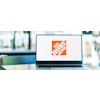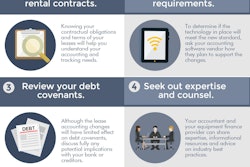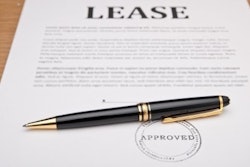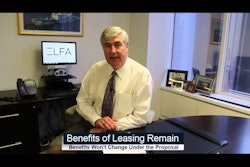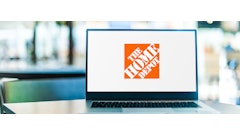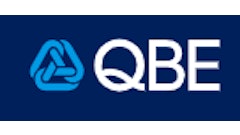
You may have heard about a proposal that would change how leases are accounted for on corporate balance sheets. If your company leases or finances equipment, you should be aware of how the proposal could change the way you account for leases, how it potentially impacts your business, and what you can do make your voice heard on the proposal.
Background
A majority of U.S. companies across a wide spectrum of industries lease equipment and real estate as part of their day-to-day operations. Currently, operating leases are not reported on companies’ balance sheets; they are typically included in the footnotes of companies’ financial statements. As part of the global effort to establish uniform corporate financial accounting standards, the Financial Accounting Standards Board (FASB) and the International Accounting Standards Board (IASB) issued a proposal for a new lease accounting standard on May 16, 2013. The Boards’ intent is to record these transactions on balance sheet (i.e., capitalize all leases with lease terms of more than one year on lessees’ books). You have until September 13 to comment on the proposal.
Change in Lease Accounting Rules Fact Sheet
What’s in the proposal?
The primary components of the proposals are the following:
- The current risk-reward model, which distinguishes a capital lease from an operating lease, would be replaced with a so-called Right of Use approach. Under this model, the lessee would account for the lease contract’s rights and obligations as assets and liabilities, using a method similar to capital lease accounting for virtually all equipment leases.
- Two types of leases would be recognized: some would be accounted for as financing arrangements, similar to a loan, and others treated like rentals. The distinction would depend on how much of the leased item is consumed during the term of the lease. Leases of buildings and property would be treated like rentals, while equipment leases (including construction assets) would be considered financing contracts.
- With this equipment vs. real estate classification split, the expense related to the former would be front-loaded, similar to interest in a mortgage financing, while the lease expense in the latter type of lease would be recognized as it is today with operating leases, on a straight-line basis.
- The proposal would defer some of the sales–type, up front gross profits recognized under current lease accounting rules. The portion deferred is that portion related to the residual assumed by the manufacturer/dealer lessor.
How will the proposal impact businesses?
Estimates are that U.S. public companies have more than $1.3 trillion in operating lease payments that will be brought on balance sheets, adding assets and liabilities.
Many businesses do not object to having to record leases on their books. Rather, they object to how the proposal would require them to account for and report lease transactions, contending that aspects of the proposal are too complex, impose burdensome regulation on businesses and do not accurately reflect the economics of the lease transaction. If the proposed changes do not reflect an appropriate balancing of costs and benefits, they could result in an unwarranted increase in cost of capital to U.S. companies that utilize leasing.
Video: Lease Accounting Proposal Concerns Businesses
How will the proposal impact the construction industry?
As an asset intensive industry, the construction industry would be heavily impacted by the proposed changes to lease accounting.
Under the proposal, the present value of the lease rents will be recorded by the lessee as an asset and liability. The profit-and-loss pattern will not represent the economic nature of a rental agreement, as lease expense will be front-loaded. This will increase the cost of leasing in the early years of the contract and will not match the periodic rental payments under the lease.
Lease pricing may rise due to the deferral of profits in sales-type lease accounting for lessors.
What can businesses do?
There is a 120-day comment period. Lessees and lessee groups—including construction companies —and their financing partners should submit a comment letter prior to the Sept. 13, 2013, deadline. Only then will the standards-setting bodies be aware of the real-life business impact if these rules changes are adopted. A link to the Exposure Draft and tips for submitting an effective comment letter are available on the Equipment Leasing and Finance Association’s website at www.elfaonline.org/Issues/Accounting/.
You may consider including the following points in your comment letter:
- A straight-line expense pattern for profit-and-loss reporting more truly reflects the economics of a true lease/operating lease.
- Lease classification and balance sheet presentation based on the legal treatment in bankruptcy of leases is important for users of financial statements.
- An unnecessarily complex set of accounting rules is not in the best interest of businesses wishing to sustain themselves in a challenging economic environment.
Leases account for hundreds of billions of dollars in equipment acquisition annually, contributing not only to businesses’ success, but also to U.S. economic growth, manufacturing and jobs. The good news is that there are many benefits to leasing, and the primary reasons to lease equipment will remain intact despite the lease accounting proposal, from maintaining cash flow, to preserving capital, to obtaining flexible financial solutions, to avoiding obsolescence.
But, it is essential that the Boards carefully consider comprehensive public input and comment before finalizing their proposal to ensure a workable lease accounting standard. It is our hope that the Boards will seriously consider the negative consequences of some of these proposals and ultimately arrive at alternative approaches that do not harm American businesses and the U.S. economy.
William G. Sutton, CAE, is President and CEO of the Equipment Leasing and Finance Association, the trade association that represents companies in the $725 billion equipment finance sector, which includes financial services companies and manufacturers engaged in financing capital goods. ELFA has been equipping business for success for more than 50 years. For more information, please visit www.ELFAOnline.org. Follow ELFA on Twitter @elfaonline.
William Bosco, a member of the IASB/FASB International Working Group on lease accounting and an accounting policy consultant for ELFA, contributed to this article.



